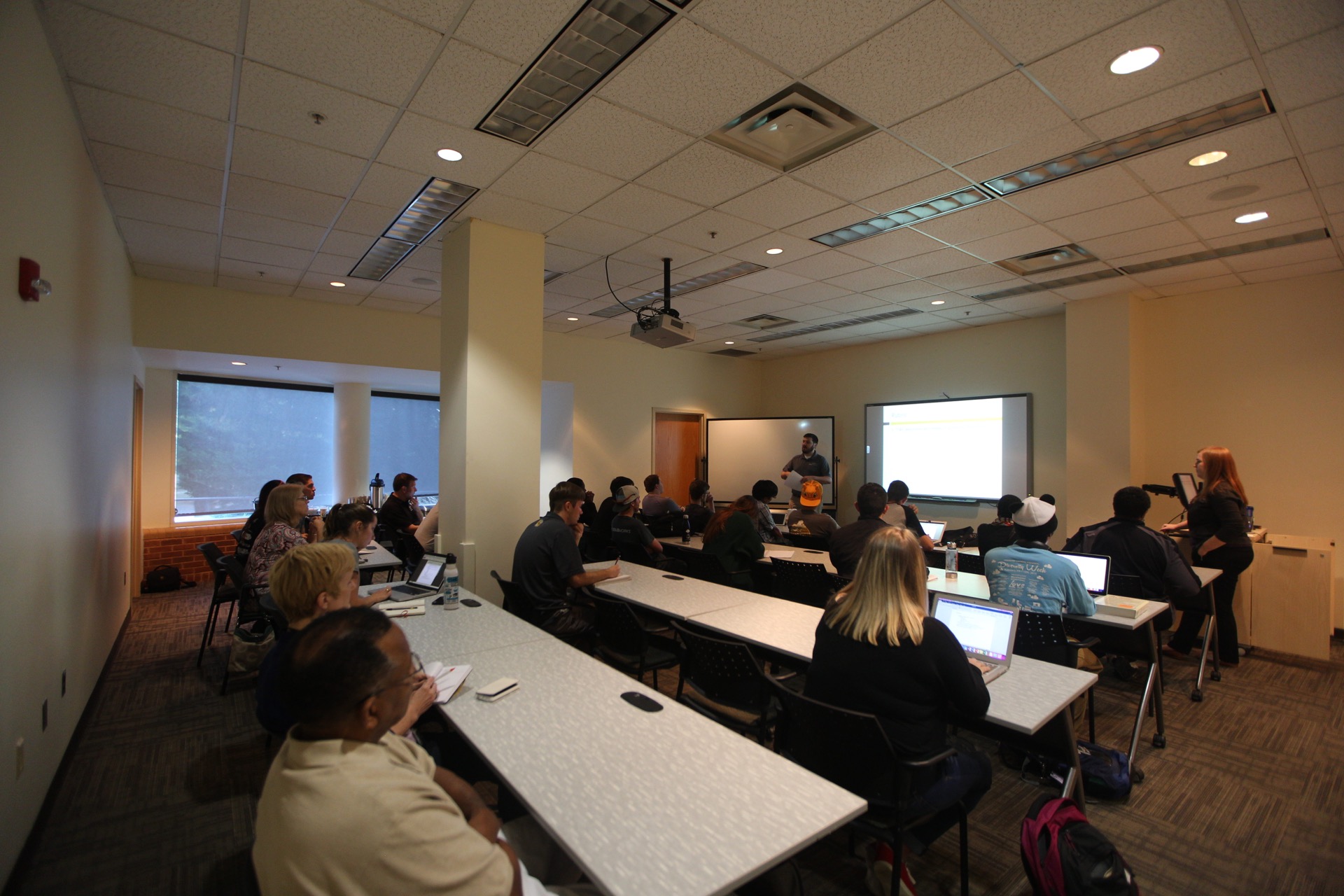Kennesaw State University’s Department of Student Activities hosted an informational meeting in the Marietta campus student center Oct. 27 for the new Student Registered Organizations classifications.
Jordyn Clark, the coordinator of student organizations, and Drew Harvill, the associate director for Student Activities, presented information on the classifications and steps in the process of registering a student organization. The current model is inefficient and not serving its intended purpose, Harvill said.
“Change is not easy,” Clark said. “The people are not very happy about this process and we understand that.”
Student resistance to the new requirements for RSOs was acknowledged at the beginning of the meeting.
“At the end of the day, we are not trying to make this difficult or cumbersome for you,” Clark told the crowd. “We are trying to get the most fair process for all student organizations.”
Student organizations will be categorized into four classifications: chartered, sponsored, affiliated and recognized. Organizations that are less involved with the university will fall under the recognized and affiliated classifications while organizations that have a stronger connection to the university, such as the Student Government Association, will fall under the sponsored and chartered categories and receive more funding.
Recognized organizations could be a group of friends getting together to play chess every week, while a chartered organization could be an organization as big as a university department, Harvill said. The classification is based on various aspects, including the organization’s size, scope and connection to the university.
“Organizations with stronger or more direct connections to the university will have access to a greater amount of resources through the university,” Harvill said.
Organizations that fall under the chartered and sponsored classifications will have access to more resources.
“As an administrator, I value transparency, accountability, consistency, fairness and understanding,” Harvill said. “I think these new changes will bring more of all of these as the system is implemented.”
Harvill addressed the concerns students have regarding funding for their organizations. He said that students should not see any significant losses in the amount or ways they receive funding.
“If anything, more groups stand to have greater access to funds than before,” Harvill said.
He emphasized that the changes will not go into effect until the next fiscal year. Misinformation has been one of the biggest issues driving student resistance to the RSO changes, Harvill said.
“There is so much variance across student organizations that coming up with one singular, effective rubric is going to be very difficult,” Harvill said. “Know that all the decisions the committee will be making is done in a holistic fashion looking at all of the elements in total.”
An organization’s membership requirements, adviser’s job function and amount of open events the organization puts on for the university will also be taken into consideration during the classification process.
The Classification Committee will consist of seven students and two faculty members. The director of the Department of Student Activities will ultimately decide the classifications based on the Committee’s recommendations, Harvill said.
Student organizations need to fill out the classification application in order to be classified for the next fiscal year that will grant organizations the rights, privileges and annual requirements that come with each classification.
The application requires all student organizations to present their government documents, events and programs overview and a membership summary. The classification application will be available to fill out Nov. 1 and the Classification Committee will review the applications until Dec. 2.
Student organizations should have their applications in by Nov. 18. If a student organization only expects to be categorized as “recognized,” then that organization does not have to fill out an application and will keep its status.
Organizations will be informed of their classification by Jan. 9, 2017. Students that disagree with their organization’s classification will be able to appeal the decision after that date.


